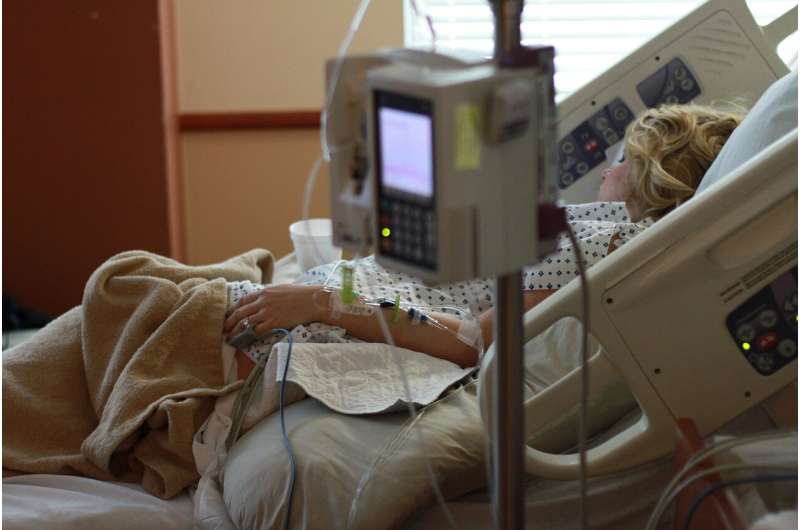Study identifies ways to reduce hospitalisations for older Australians

One in five South Australians will experience an unplanned hospitalization or emergency department presentation within 90 days of undertaking an aged care assessment, according to new research by the University of South Australia and the South Australian Health and Medical Research Institute.
The large-scale study, which analyzed the outcomes of 22,130 people who had an aged care eligibility assessment (ACAT), also found 25 predictors that identify older people most at risk of being hospitalized.
These risk factors include level of frailty, types of medications taken, and frequency of after-hours services use.
Lead researcher Professor Maria Inacio says the findings suggest that the ACAT, which 186,000 Australians undertake every year, is a promising period to implement programs targeted at reducing hospitalization for older Australians.
“We can identify moderately well those most at risk of being hospitalized, meaning we can determine the older people who need the most follow up after their assessment,” Prof Inacio says.
“If we provide targeted treatment or therapies during this time, we can not only provide better support to older people transitioning to care, but we could reduce overcrowding and ramping in our hospitals as well.”
“We found 25 specific predictors of either hospitalisations or emergency department encounters, including recent history of high use of after-hours services, prior hospitalization, and certain medications.”
In 2018 in Australia, older people accounted for 16 percent of the population and 42 percent of the hospitalisations and 49 percent of the days spent in hospital.
Prof Inacio, who oversees the national database Registry of Senior Australians, says reducing the amount of time older people spend in hospitals is better for everyone, and the study offers practical recommendations to help this happen.
“Our findings can help ensure older people have the best care, and their families, clinicians, and aged care providers are informed on how to best care for them,” she says.
“Older people are usually on a lot of medication, for example. We found that after a certain number of medications they are at a higher risk of unplanned hospitalisations.”
“Optimized medication management is one potential area that could be implemented through existing programs such as home medicine reviews. This is a Medicare-subsidized program for older people living in the community, yet it is not used as often as it should be.”
“Frailty is also a significant predictor of hospitalisations, and this is another factor we could address following an ACAT assessment.”
“If we invest in services and care that can help reduce frailty—things like encouraging physical exercise if possible, or comprehensive management with geriatric specialists and appropriate allied health professionals—we could improve older people’s quality of life and reduce the impact on our hospitals at the same time.”
Source: Read Full Article



